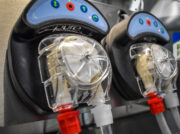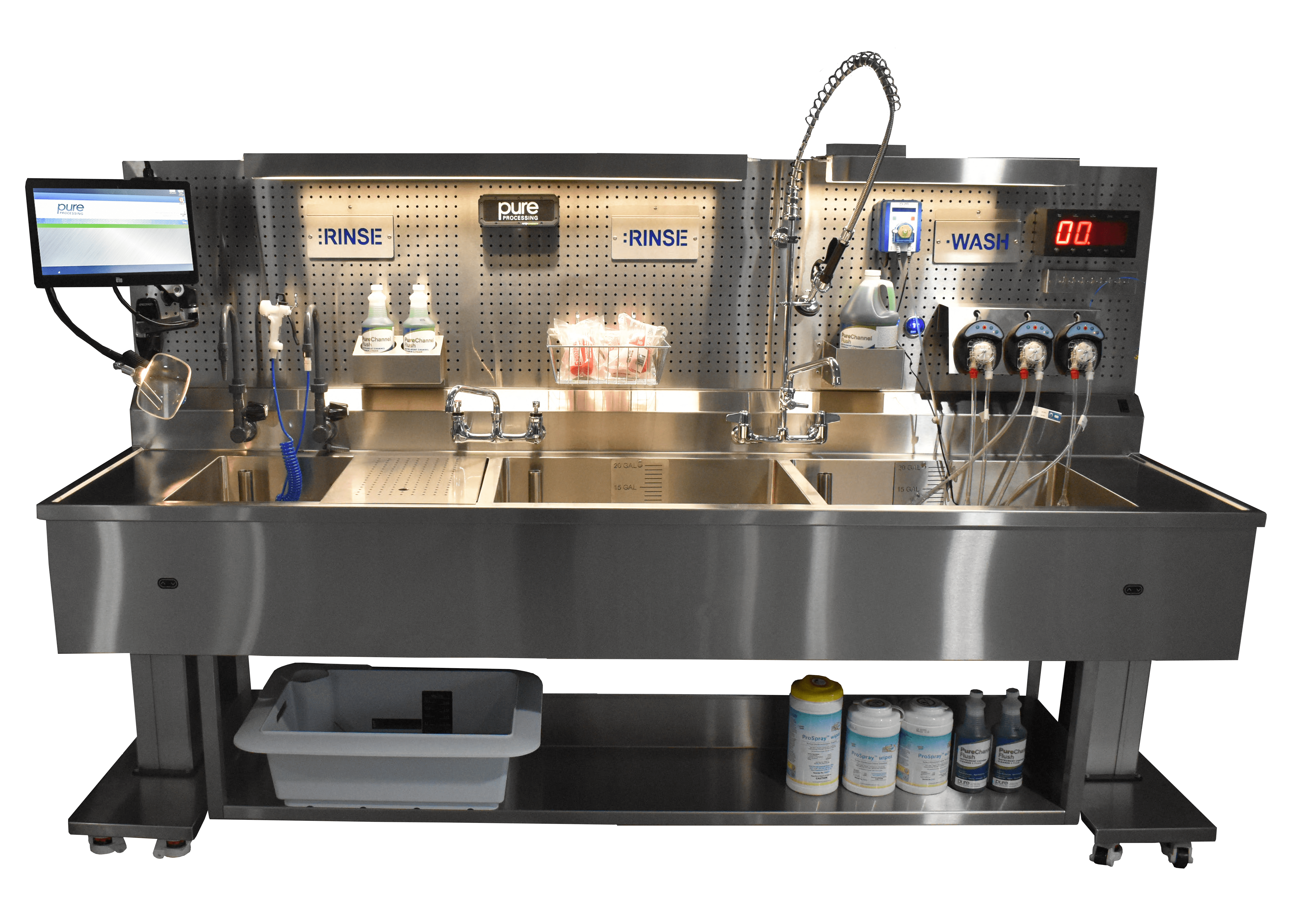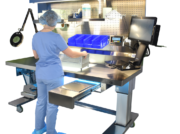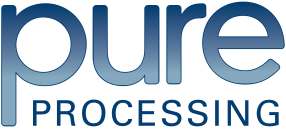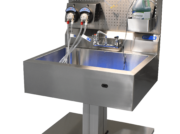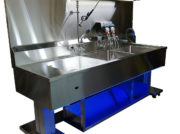
Customization: The Practical Solution to Tough Problems
Customization is often viewed as a luxury; something deemed expensive, unnecessary or frivolous. But in reprocessing departments, nothing could be further from the truth. No two departments are exactly alike, and they’re often shoe-horned into a space not originally meant for an instrument or scope reprocessing department, at least not for the demand of a modern OR. These departments, however, are all required to do the same job, to the same high standards.
Equipment customization isn’t an unnecessary luxury, it’s a practical way for departments to solve their unique problems and meet their unique needs.
In 2023, SPD and GI professionals from across the country participated in two surveys: the 2023 SPD State of the Industry Survey and the 2023 GI Nurse & Technician Survey. Through these surveys, and the subsequent reports created from the results, many problems were identified from the frontlines of reprocessing.
How can equipment customization address some of these problems?
Ergonomics & Technician Comfort
In the 2023 SPD State of the Industry Survey, participants rated Ergonomics & Technician Comfort in their departments a collective 6.3/10, leaving considerable room for improvement. Further, 39.62% of participants in the 2023 GI Nurse & Technician Survey pointed to working conditions, such as stress, ergonomics, and burnout as the top reason people leave GI/Endoscopy departments.
Ergonomics can be closely related to customization, and a 2020 study on the types of ergonomics and efficiency can be tied back to employee wellness. (Kata, Anilambic , July 2020) With a focus on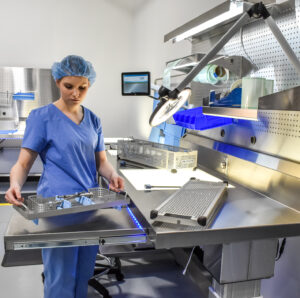 cognitive and physical ergonomics, customization allows for the consideration of the employees and their unique interactions with their job and the standards & regulations that are imparted on them to adhere to.
cognitive and physical ergonomics, customization allows for the consideration of the employees and their unique interactions with their job and the standards & regulations that are imparted on them to adhere to.
Approaching ergonomic challenges through the lens of equipment customization is an excellent way to zero-in on specific problems address them directly. For instance, designing a sink or prep and pack table to include height-adjustable lifters rather than fixed-height legs, or with other micro-ergonomic features like monitor tilts and foldaway keyboards, the employee as the ability to make the adjustments to maintain comfortable working conditions.
Similarly, designing workflows and processes at sinks and workstations in an intuitive, accessible way helps keep technicians from straining themselves, overexerting, or putting themselves in precarious positions trying to reach for necessary tools. For example, the location of equipment such as leak testers, enzymatic dosing pumps and other reprocessing supplies can impact workflows and the employee’s ability to complete the job consistently and without strain.
Customized pegboards, pegboard layouts, and accessories can help keep everything a technician needs within reach.
Lack of Space
Nearly 57% of participants in the 2023 SPD State of the Industry Survey cited space concerns as being among the most common problems seen in sterile processing departments. A lack of space is often the source of many other problems, such as IFU compliance, poor workflow, and inefficiencies.
Equipment customization shines here as well. The ability to design a reprocessing sink or prep & pack table from the ground up with your department’s needs and spatial limitation in mind means that the space you do have can be maximized in a way that cookie cutter equipment can’t achieve. Some standard equipment sizes may be too large for the area you have available, while others may be too small, leaving precious space entirely unused and unable to be repurposed.
A foot of empty space next to your sink isn’t good for much, but an extra foot of counter built into your sink is exceptionally useful!
Upcoming Challenges
Workarounds and modified compliance can give way to gaps and inconsistencies in reprocessing in both sterile processing and gastroenterology spaces. Standards and regulations are bringing more awareness to the ramifications of poor or hindered practices, and with it, new rationales and guidance that can aid in preventing the cost of discrepancies.
38.68% of 2023 GI Nurse & Technician Survey respondents pointed to compliance, guidelines, and IFU requirements as the top concern looking to the future. Participants of the 2023 SPD State of the Industry Survey were on the same page, with 64.18% considering it to be a growing challenge moving forward.
It’s clear that reprocessing professionals across the country, and across disciplines, view compliance as a daunting task to continually achieve. IFU’s are unique and require workflow adaptability to provide a pathway for compliance.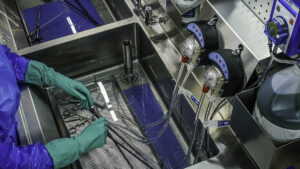
Tailored equipment has a role to play here as well. Whether it be required basin count to configure workflows properly (ANSI/AAMI ST91 4.3.2 & ANSI/AAMI ST79 3.3.6.1) , basin width to guarantee lengthy instruments can be fully submerged per their IFU, or integrated lighting to ensure light levels are suitable enough for accurate visual inspection (ANSI/AAMI ST79 3.3.5.6 & ANSI/AAMI ST91 4.3.8), custom equipment allows departments to achieve compliance based on the nature of devices being reprocessed within them. Customization also plays a key role in organization and should be utilized in such a way that processes become streamlined and speak to the expectation of the job being accomplished at that station.
Conclusion
Don’t be fooled about the importance of customization. While adding a mini fridge and video game system to the trunk of a car might be unnecessary, customizing equipment for sterile processing and GI/endoscopy departments is quite the opposite. Equipment customizations enable reprocessing departments to better achieve their goals with the resources and space they have at their disposal.
Whether it be enhancing ergonomics, maximizing space usage, or achieving compliance with industry standards and IFUs, custom equipment design has a critical role to play in improving the effectiveness of SPD and GI departments.
Interested in finding out how you can solve some of your department’s ongoing challenges through tailor-made equipment? We’d love to help!
